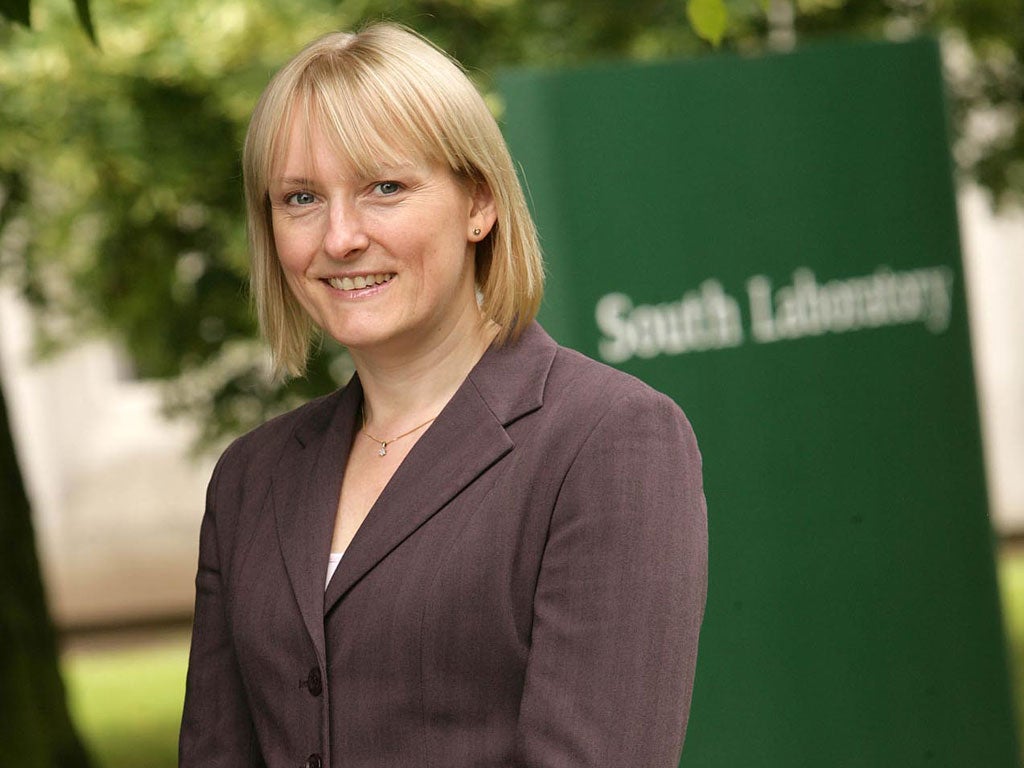I want your job: Master brewer
Being paid to drink beer? Well, yes, but there's so much more science to being a brewer than that

Your support helps us to tell the story
From reproductive rights to climate change to Big Tech, The Independent is on the ground when the story is developing. Whether it's investigating the financials of Elon Musk's pro-Trump PAC or producing our latest documentary, 'The A Word', which shines a light on the American women fighting for reproductive rights, we know how important it is to parse out the facts from the messaging.
At such a critical moment in US history, we need reporters on the ground. Your donation allows us to keep sending journalists to speak to both sides of the story.
The Independent is trusted by Americans across the entire political spectrum. And unlike many other quality news outlets, we choose not to lock Americans out of our reporting and analysis with paywalls. We believe quality journalism should be available to everyone, paid for by those who can afford it.
Your support makes all the difference.Being paid to perfect beer sounds like a job that’s far too good to be true, but for a certain lucky few, it’s a reality.
Katherine Smart is one such person, but she’s quite a lot more than an enthusiastic amateur with a love for ale. No, in her capacity as group chief brewer at multinational brewer SABMiller, Katherine has a PhD in the science of beer brewing, and many years of specialist experience.
SABMiller is one of the world’s largest brewers, responsible for more than 200 beer brands in over 75 countries. If you’ve drunk Pilsner Urquell, Peroni, Miller Genuine Draft or Grolsch, you’ve probably tasted some of Katherine’s handiwork. But how did she work her way into such an enviable position?
“I graduated with a BSc in biological sciences, and in my last year I conducted a study in the microbiology labs,” she says.
“I became fascinated by it, and fell in love with brewing, and yeast in particular. I went on to spend three years as a PhD scholar at Bass Brewers’ R&D unit. The interview – with the head of R&D – was quite daunting, but I passed muster.”
From there, her career switched from brewing back to academia, winning a post-doctoral fellowship at Cambridge funded by industry, looking at how fruit juices can stay fresh for longer. She realised, though, that she “desperately missed brewing”.
“Research wasn’t quite the same and I wanted to get back to fermentation. So I applied for a lectureship which would allow me to focus on the research side of brewing. No one told me that 25 was too young so I went ahead and did it!”
Brewing, it turns out, isn’t simply a case of shoving yeast and hops into a barrel of water and hoping for the best. In fact, it’s a complicated and exact science.
“A lot of it is microscopy; using microscopes to look at what happens in the process. It’s looking at a sample from a 2-300,000 litre batch of fermenting beer and analysing the process, and giving a full chemical analysis of the formation of the wonderful flavours.”.”
There are several elements to Katherine’s remit. She leads SABMiller’s brewing research programme, so her academic background is hugely relevant. She also leads the innovation programme, which is charged with improving efficiency.
“I ensure that we use resources wisely,” she says. “It’s about minimising water and energy use, both because it’s the right thing to do and because it saves money. We now use 3.7 litres of water to make 1 litre of beer – a figures which is industry-leading.
“Essentially what I do is science, focusing on the quality of our beers and ensuring our processes are as resource efficient as possible. But I’m also an honorary professor at Nottingham, so I supervise a number of PhD students in a mentoring role.”
Advice for wannabe brewers
Unfortunately for arts grads, says Katherine, brewing most likely requires science or engineering subjects for a first degree. Then an MSc in brewing science is most helpful – places like Nottingham offer a good course.
“You can also come in as a fresh graduate and study while you’re working. The Institute of Brewing and Distilling has a range of courses like that."
But it’s good news for people serious about making a career of it. Says Katherine: “Brewing is one of those fantastic sectors where you are looking at a brilliant development route. If you’re an engineer you learn about the science and vice versa.”
And you don’t even have to be a graduate – there are routes in for dedicated people who don’t have a degree, but it does help to have a real interest in science. To become a head of research you’d need a PhD, however.
“It helps if applicants are interested in the process and also in the ingredients – plant science is key. Brewing is one of those wonderful occupations where you get to use science. There is also real heritage and history; you get to use a real skill and at the end of the day, the product is great.”
So in a job that revolves around beer, how much does Katherine actually like it?
“I am a huge fan of beer, and yes, I get to taste a wide variety of beers through my work. The sensory experience that you get from beer is rich and wonderful – it’s as much about smelling it and savouring it. But at work it is very much about professional tasting, rather than drinking. But I do enjoy a beer at the weekend!”
Katherine will be attending the Women of the Year lunch and awards on Monday 14 October
Join our commenting forum
Join thought-provoking conversations, follow other Independent readers and see their replies
Comments